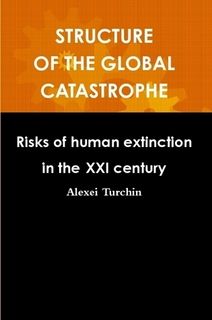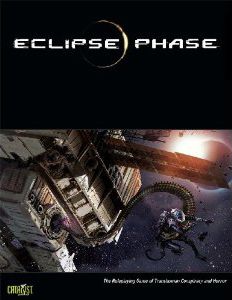My book “STRUCTURE OF THE GLOBAL CATASTROPHE Risks of human extinction in the XXI century” is now available through Lulu http://www.lulu.com/product/paperback/structure-of-the-globa…y/11727068  But it also available free on scribd http://www.scribd.com/doc/6250354/STRUCTURE-OF-THE-GLOBAL-CA…I-century– This book is intended to be complete up to date source book on information about existential risks.
But it also available free on scribd http://www.scribd.com/doc/6250354/STRUCTURE-OF-THE-GLOBAL-CA…I-century– This book is intended to be complete up to date source book on information about existential risks.
Page 12282
Jul 12, 2010
The True Cost of Ignoring Nonhumans
Posted by Denise Herzing in categories: biological, ethics, futurism, policy
Posted by Dr. Denise L Herzing and Dr. Lori Marino, Human-Nonhuman Relationship Board
Over the millennia humans and the rest of nature have coexisted in various relationships. However the intimate and interdependent nature of our relationship with other beings on the planet has been recently brought to light by the oil spill in the Gulf of Mexico. This ongoing environmental disaster is a prime example of “profit over principle” regarding non-human life. This spill threatens not only the reproductive viability of all flora and fauna in the affected ecosystems but also complex and sensitive non-human cultures like those we now recognize in dolphins and whales.
Although science has, for decades, documented the links and interdependence of ecosystems and species, the ethical dilemma now facing humans is at a critical level. For too long have we not recognized the true cost of our life styles and priorities of profit over the health of the planet and the nonhuman beings we share it with. If ever the time, this is a wake up call for humanity and a call to action. If humanity is to survive we need to make an urgent and long-term commitment to the health of the planet. The oceans, our food sources and the very oxygen we breathe may be dependent on our choices in the next 10 years.
And humanity’s survival is inextricably linked to that of the other beings we share this planet with. We need a new ethic.
Jul 6, 2010
What’s your idea to BodyShock the Future?
Posted by Alexandra Carmichael in categories: biotech/medical, futurism
I’m working on this project with Institute for the Future — calling on voices everywhere for ideas to improve the future of global health. It would be great to get some visionary Lifeboat ideas entered!
INSTITUTE FOR THE FUTURE ANNOUNCES BODYSHOCK:
CALL FOR ENTRIES ON IDEAS TO TRANSFORM LIFESTYLES AND THE HUMAN BODY TO IMPROVE HEALTH IN THE NEXT DECADE
“What can YOU envision to improve and reinvent health and well-being for the future?” Anyone can enter, anyone can vote, anyone can change the future of global health.
Continue reading “What's your idea to BodyShock the Future?” »
Jun 26, 2010
Existential Risk Reduction Career Network
Posted by Peer Infinity in categories: existential risks, finance, lifeboat
The existential risk reduction career network is a career network for those interested in getting a relatively well-paid job and donating substantial amounts (relative to income) to non-profit organizations focused on the reduction of existential risks, in the vein of SIAI, FHI, and the Lifeboat Foundation.
The aim is to foster a community of donors, and to allow donors and potential donors to give each other advice, particularly regarding the pros and cons of various careers, and for networking with like-minded others within industries. For example, someone already working in a large corporation could give a prospective donor advice about how to apply for a job.
Over time, it is hoped that the network will grow to a relatively large size, and that donations to existential risk-reduction from the network will make up a substantial fraction of funding for the beneficiary organizations.
In isolation, individuals may feel like existential risk is too large a problem to make a dent in, but collectively, we can make a huge difference. If you are interested in helping us make a difference, then please check out the network and request an invitation.
Please feel free to contact the organizers at contact@xrisknetwork.com with any comments or questions.
Jun 25, 2010
Lifeboat Foundation in Games
Posted by Eric Klien in categories: existential risks, fun
 The RPG Eclipse Phase includes the “Singularity Foundation” and “Lifeboat Institute” as player factions. Learn more about this game!
The RPG Eclipse Phase includes the “Singularity Foundation” and “Lifeboat Institute” as player factions. Learn more about this game!
P.S. In case you don’t know, there is a Singularity Institute for Artificial Intelligence.
Eclipse Phase is a roleplaying game of post-apocalyptic transhuman conspiracy and horror.
An “eclipse phase” is the period between when a cell is infected by a virus and when the virus appears within the cell and transforms it. During this period, the cell does not appear to be infected, but it is.
Players take part in a cross-faction secret network dubbed Firewall that is dedicated to counteracting “existential risks” — threats to the existence of transhumanity, whether they be biowar plagues, self-replicating nanoswarms, nuclear proliferation, terrorists with WMDs, net-breaking computer attacks, rogue AIs, alien encounters, or anything else that could drive an already decimated transhumanity to extinction.
Jun 24, 2010
Singularity Summit 2010 in San Francisco to Explore Intelligence Augmentation
Posted by Tom McCabe in category: robotics/AI
Continue reading “Singularity Summit 2010 in San Francisco to Explore Intelligence Augmentation” »
Jun 12, 2010
My presentation on Humanity + summit
Posted by Alexei Turchin in categories: futurism, robotics/AI
In the lunch time I am existing virtually in the hall of the summit as a face on the Skype account — i didn’t get a visa and stay in Moscow. But ironically my situation is resembling what I an speaking about: about the risk of remote AI which is created by aliens million light years from Earth and sent via radio signals. The main difference is that they communicate one way, and I have duplex mode.
This is my video presentation on YouTube:
Risks of SETI, for Humanity+ 2010 summit
Tags: extinction, h+, SETI, summit
Jun 11, 2010
H+ Conference and the Singularity Faster
Posted by Keith Curtis in categories: futurism, robotics/AI
We can only see a short distance ahead, but we can see plenty there that needs to be done.
—Alan Turing
As a programmer, I look at events like the H+ Conference this weekend in a particular way. I see all of their problems as software: not just the code for AI and friendly AI, but also that for DNA manipulation. It seems that the biggest challenge for the futurist movement is to focus less on writing English and more on getting the programmers working together productively.
I start the AI chapter of my book with the following question: Imagine 1,000 people, broken up into groups of five, working on two hundred separate encyclopedias, versus that same number of people working on one encyclopedia? Which one will be the best? This sounds like a silly analogy when described in the context of an encyclopedia, but it is exactly what is going on in artificial intelligence (AI) research today.
Today, the research community has not adopted free software and shared codebases sufficiently. For example, I believe there are more than enough PhDs today working on computer vision, but there are 200+ different codebases plus countless proprietary ones. Simply put, there is no computer vision codebase with critical mass.
Continue reading “H+ Conference and the Singularity Faster” »
Jun 9, 2010
Have Corporations Become a Global Existential Threat?
Posted by Oliver Starr in categories: business, ethics, existential risks
 Perhaps you think I’m crazy or naive to pose this question. But more and more the past few months I’ve begun to wonder if there is a possibility here that this idea may not be too far off the mark.
Perhaps you think I’m crazy or naive to pose this question. But more and more the past few months I’ve begun to wonder if there is a possibility here that this idea may not be too far off the mark.
Not because of some half-baked theory about a global conspiracy or anything of the sort but simply based upon the behavior of many multinational corporations recently and the effects this behavior is having upon people everywhere.
Again, you may disagree but my perspective on these financial giants is that they are essentially predatory in nature and that their prey is any dollar in commerce that they can possibly absorb. The problem is that for anyone in the modern or even quasi-modern world money is nearly as essential as plasma when it comes to our well-being.
It has been clearly demonstrated again and again — all over the world — that when a population has become sufficiently destitute that the survival of the individual is actually threatened violence inevitably occurs. On a large enough scale this sort of violence can erupt into civil war and wars, as we all know too well can spread like a virus across borders, even oceans.
Continue reading “Have Corporations Become a Global Existential Threat?” »
King Louis XVI’s entry in his personal diary for that fateful day of July 14, 1789 suggests that nothing important had happened. He did not know that the events of the day-the attack upon the Bastille-meant that the revolution was under way, and that the world as he knew it was essentially over. Fast forward to June, 2010: a self-replicating biological organism (mycoplasma mycoides bacterium transformed) has been created in a laboratory by J. Craig Venter and his team. Yes, the revolution has begun. Indeed, the preliminaries have been going on for several years; it’s just that … um, well, have we been wide awake?
Ray Kurzweil’s singularity might be 25 years into the future, but sooner, a few years from now, we’ll have an interactive global network that some refer to as ‘global brain.’ Web3. I imagine no one knows exactly what will come out of all this, but I expect that we’ll find that the whole will be more than and different from the sum of the parts. Remember Complexity Theory. How about the ‘butterfly effect?’ Chaos Theory. And much more not explainable by theories presently known. I expect surprises, to say the least.
I am a retired psychiatrist, not a scientist. We each have a role to enact in this drama/comedy that we call life, and yes, our lives have meaning. Meaning! For me life is not a series of random events or events brought about by ‘them,’ but rather an unfolding drama/comedy with an infinite number of possible outcomes. We don’t know its origins or its drivers. Do we even know where our visions comes from?
So, what is my vision and what do I want? How clearly do I visualize what I want? Am I passionate about what I want or simply lukewarm? How much am I prepared to risk in pursuit of what I want? Do I reach out for what I want directly or do I get what I want indirectly by trying to serve two masters, so to speak? If the former I practice psychological responsibility, if the latter I do not. An important distinction. The latter situation suggests unresolved dilemma, common enough. Who among us can claim to be without?








